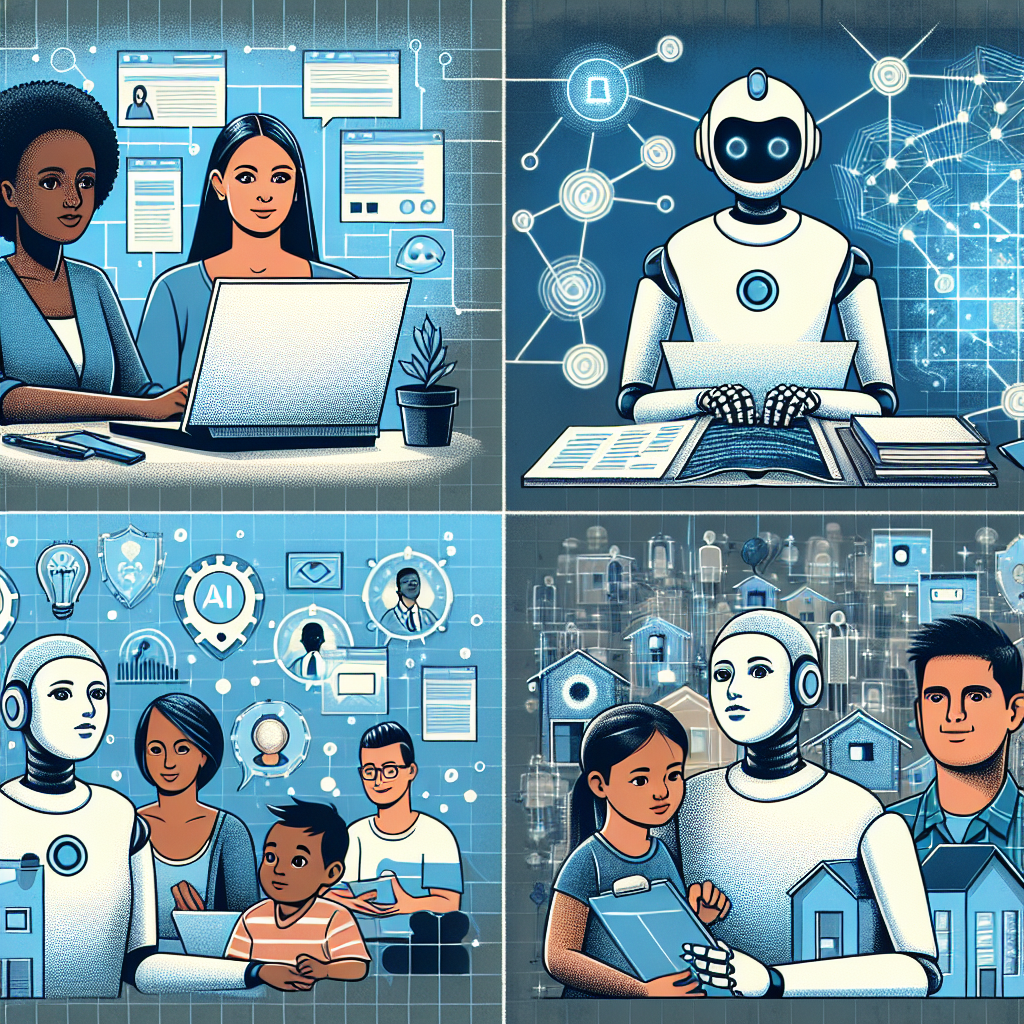Artificial Intelligence (AI) has the potential to revolutionize the way governments provide community development and social services to their citizens. By leveraging the power of AI technology, governments can streamline processes, improve efficiency, and enhance the overall quality of services provided to their communities. In this article, we will explore the benefits of AI in improving government community development and social services, as well as address some frequently asked questions about this emerging technology.
Benefits of AI in Government Community Development and Social Services
1. Data Analysis and Insights
One of the key benefits of AI in government services is its ability to analyze vast amounts of data quickly and efficiently. By harnessing the power of AI algorithms, governments can gain valuable insights into community needs, trends, and preferences. This data-driven approach allows policymakers to make more informed decisions and allocate resources more effectively to address the most pressing issues facing their communities.
2. Enhanced Efficiency and Productivity
AI technology can automate repetitive tasks and streamline processes, freeing up government employees to focus on more strategic and high-value activities. For example, AI-powered chatbots can handle routine inquiries from citizens, freeing up customer service representatives to address more complex issues. By automating tasks that would otherwise be time-consuming and labor-intensive, governments can improve efficiency and productivity across various departments.
3. Improved Service Delivery
AI can help governments provide more personalized and responsive services to their citizens. For example, AI-powered recommendation engines can suggest relevant services and resources based on individual preferences and needs. This personalized approach can help ensure that citizens receive the support and assistance they need in a timely manner, leading to improved outcomes and greater satisfaction with government services.
4. Predictive Analytics
AI can also help governments anticipate and address emerging issues before they escalate into larger problems. By analyzing historical data and identifying patterns and trends, AI algorithms can predict future outcomes and help governments proactively address potential challenges. For example, AI can help predict spikes in demand for social services during times of crisis or identify at-risk populations that may require additional support.
5. Cost Savings
By automating tasks and improving efficiency, AI can help governments reduce costs and allocate resources more effectively. For example, AI-powered systems can optimize scheduling and resource allocation to minimize waste and inefficiencies. Additionally, AI can help identify opportunities for cost savings and process improvements, leading to more cost-effective service delivery.
Frequently Asked Questions about AI in Government Community Development and Social Services
Q: How can AI help governments address homelessness and affordable housing issues?
A: AI can help governments analyze data on homelessness and affordable housing trends to identify areas of need and develop targeted solutions. For example, AI algorithms can analyze housing data to identify vacant properties that can be repurposed for affordable housing or predict areas where homelessness is likely to increase in the future.
Q: How can AI improve access to healthcare and social services for underserved populations?
A: AI can help governments develop targeted outreach and service delivery strategies to reach underserved populations. For example, AI-powered chatbots can provide information on available healthcare and social services to individuals who may not have access to traditional channels of communication. Additionally, AI can help governments identify gaps in service delivery and develop targeted interventions to address disparities in access to care.
Q: What are the ethical considerations associated with using AI in government services?
A: As with any technology, there are ethical considerations that must be taken into account when using AI in government services. Governments must ensure that AI algorithms are transparent, accountable, and unbiased to avoid perpetuating existing inequalities. Additionally, governments must safeguard the privacy and security of citizen data to prevent unauthorized access or misuse.
In conclusion, AI has the potential to transform government community development and social services by improving data analysis, enhancing efficiency, and delivering more personalized and responsive services to citizens. By harnessing the power of AI technology, governments can address pressing social issues, optimize resource allocation, and improve outcomes for their communities. As AI continues to evolve and mature, it is essential for governments to embrace this technology and leverage its capabilities to drive positive change and improve the well-being of their citizens.

